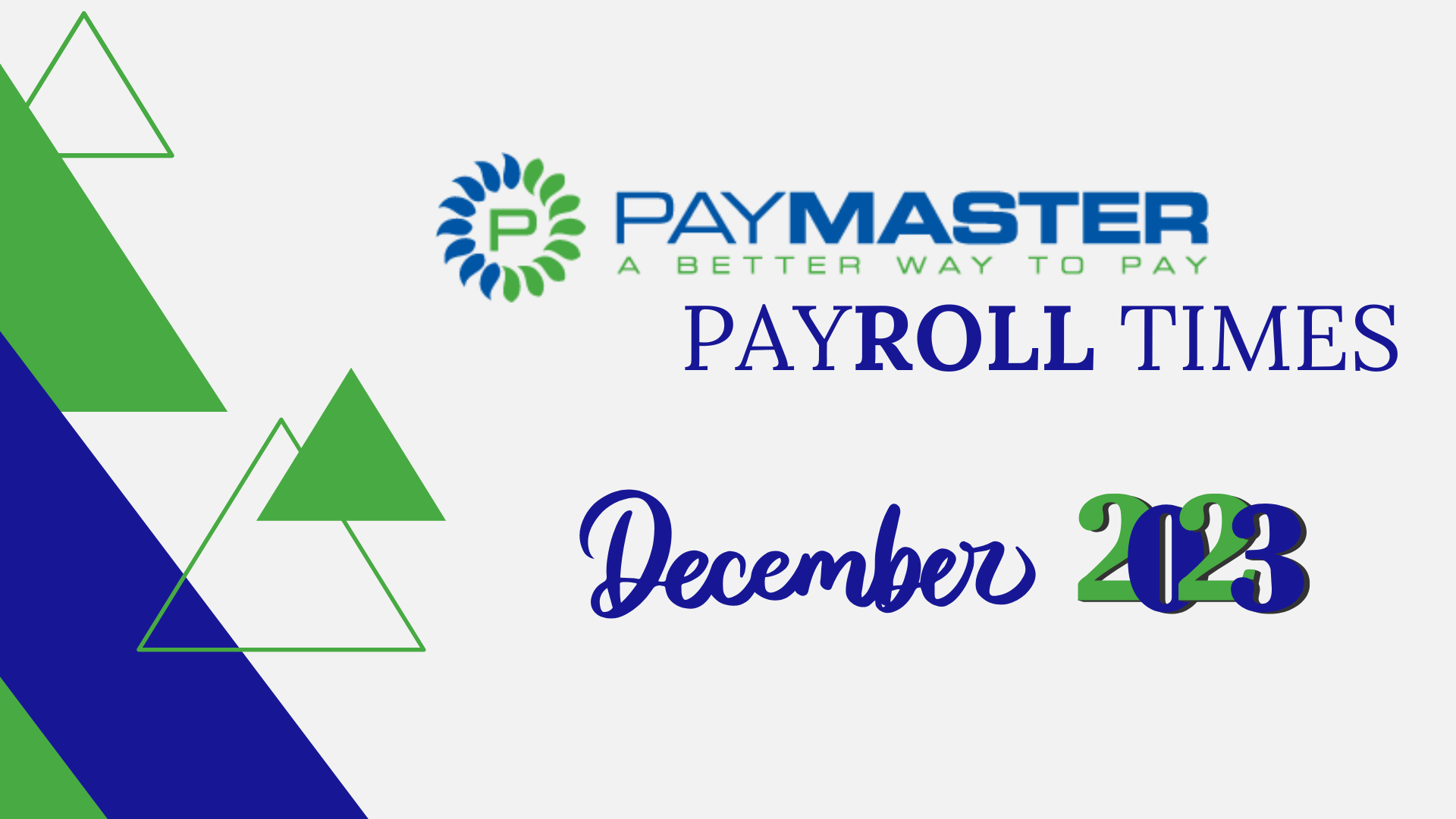


Join us Friday, December 8th at 1pm EST when our own President/CEO Romeo Chicco, Kate Russell and special guest Jasna Djurin, CPC, CPFA, Sr. Director, Compliance and Regulatory Oversight with Salvic 401K will present on a variety of important and timely payroll related topics.
The webinar will address a multitude of topics on 2023 year-end processes, procedures and policies. Including state unemployment updates, what the FUTA credit reduction means and how to handle taxable fringe benefits and large bonuses. We will also discuss 2024 payroll changes, payroll fraud and more!
Our special guest will be speaking on the Secure Act 2.0:
- Plan Set Up
- Auto Enrollment Tax Credit
- Employer Contribution Tax Credit
Space is limited so make sure to reserve your spot today!

There is a retroactive tax increase coming for employers in California, New York, & the U.S. Virgin Islands.
Under the provisions of the American Federal Unemployment Tax Act (FUTA), a Federal tax is levied on employers covered by the Unemployment Insurance program at a current rate of 6.0% on wages up to $7,000 a year paid to a worker. The law, however, provides a credit against federal tax liability of up to 5.4% to employers who pay state taxes timely under an approved state UI program. Accordingly, in states meeting the specified requirements, employers pay an effective Federal tax of 0.6%, or a maximum of $42 per covered worker, per year. The credit against the Federal tax may be reduced if the state has an outstanding advance (commonly called a “loan”). When states lack the funds to pay UI benefits, they may obtain loans from the federal government.
To assure that these loans are repaid, and in accordance with Title XII of the Social Security Act, the federal government is entitled to recover those monies by reducing the FUTA credit it gives to employers, which is the equivalent of an overall increase in the FUTA tax. When a state has an outstanding loan balance on January 1 for two consecutive years, and the full amount of the loan is not repaid by November 10 of the second year, the FUTA credit will be reduced until the loan is repaid. This process is commonly called FUTA Credit Reduction and was designed as an involuntary repayment mechanism.
The reduction schedule is 0.3% for the first year and an additional 0.3% for each succeeding year until the loan is repaid, and is applied retroactively. For 2023, there are two states and one jurisdiction affected. They are listed below, along with the credit reduction rate;
- California 0.6%
- New York 0.6%
- U.S. Virgin Islands 3.9%
For example, if you have an employee working in California, you will have an additional FUTA tax due of 0.6% for wages paid up to $7,000 for each employee for 2023. A maximum of an additional $42 per employee.
If you are a PayMaster client on our tax service, and have employees in these states, we will automatically calculate the retroactive tax amount and provide you with notice of our transferring this additional tax to the IRS in early January 2024.

State Minimum Wage Increases 2024
While the Federal minimum wage remains at $7.25 per hour for the past 15 years, 28 states and many cities, counties and locals have set increases effective January 1st, 2024 with a few announcing a change during 2024. Many states continue their path to $15.00 per hour with a number of states exceeding that rate and places in Washington state that have a minimum wage approaching $20 per hour. A list of each state/local, along with the new hourly rate is listed below. Any state that does not have a minimum wage change scheduled is not listed.Click here for the breakdown by state.

Currently employees in California are entitled to take three paid sick leave days (24 hours) a year. Effective January 1, 2024 the use cap will increase to five paid sick leave days (40 hours) a year.
Also increasing January 1, 2024 is the amount an employee can accrue in one year. Currently employees can accrue six days (48 hours), that will increase to 10 days (80 hours). The amount of accrued, unused paid sick leave that can be carried over to the next year will also increase to 10 days (80 hours). The rate of accrual will remain the same, one hour every 30 hours worked.
If an employer chooses to front load paid sick leave, the employee must receive a minimum of 3 days (24 hours) by the 120th calendar day of employment and a minimum of 5 days (40 hours) by the 200th calendar day of employment.
Also effective January 1, 2024, local paid sick leave laws will be prohibited from regulating certain issues regarding paid sick leave.


There are major tax credits available to incentivize employers to set up a new 401(k) plan for their business. These credits can add up to as much as $191,500 over 5 years!
Plan Set Up
For the first year of a new plan, and each of the two taxable years following the first year, the credit available is the greater of $500 OR the lesser of $250 for each employee who is eligible to participate in the plan, up to $5,000.

Auto Enrollment Tax Credit
Employers who utilize auto-enrollment as a feature of their plan will receive a $500 tax credit each year for 3 years.
Employer Contribution Tax Credit
Employers will receive a tax credit up to 100% of the employer contribution, up to $1,000 credit, per eligible employee with reduced tax credits for the subsequent four plan years.
Contact us if you are looking to implement a 401(k) plan in the new year.



